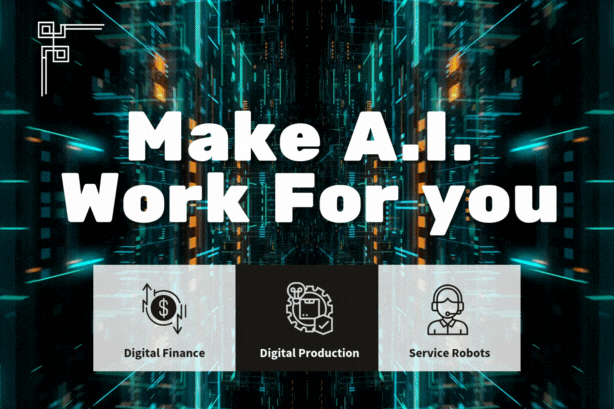Generation AI, or Gen AI, represents the latest advancement in artificial intelligence technology, designed to emulate human cognitive functions. This sophisticated AI demonstrates enhanced capabilities in learning, reasoning, and problem-solving compared to traditional AI systems. Gen AI has the potential to transform business operations by automating complex tasks, facilitating data-driven decision-making, and improving customer experiences.
Its ability to comprehend natural language, identify patterns, and adapt to new information positions Gen AI as a transformative force across various industries. Gen AI signifies a major advancement in artificial intelligence, moving beyond basic rule-based systems to incorporate more advanced machine learning and deep learning techniques. By utilizing neural networks and other cutting-edge algorithms, Gen AI can process and analyze extensive datasets in real-time, providing businesses with valuable insights for informed decision-making.
This technology has the potential to drive innovation, enhance efficiency, and create new growth opportunities across a wide spectrum of industries.
Key Takeaways
- Gen AI refers to the next generation of artificial intelligence that is designed to mimic human-like cognitive abilities and decision-making processes.
- Gen AI has the potential to significantly impact business operations by automating repetitive tasks, improving efficiency, and enabling better decision making.
- Implementing Gen AI in business processes involves integrating AI technologies into existing systems, training employees to work alongside AI, and ensuring data privacy and security.
- Gen AI plays a crucial role in decision making by analyzing large volumes of data, identifying patterns, and providing insights to support strategic and operational decisions.
- Enhancing customer experience with Gen AI involves personalizing interactions, providing real-time support, and anticipating customer needs through predictive analytics and machine learning algorithms.
- Overcoming challenges in adopting Gen AI requires addressing concerns about job displacement, ensuring ethical and responsible use of AI, and investing in training and upskilling employees.
- The future of business operations with Gen AI is expected to involve greater automation, improved productivity, and the emergence of new business models and opportunities driven by AI technologies.
The Impact of Gen AI on Business Operations
Optimizing Business Processes
By automating repetitive tasks and optimizing workflows, Gen AI can help businesses operate more efficiently and effectively. For example, in the manufacturing sector, Gen AI can be used to optimize production schedules, predict equipment failures, and improve quality control.
Enhancing Customer Experience
In the retail industry, Gen AI can be used to personalize marketing campaigns, optimize inventory management, and enhance the customer shopping experience.
Revolutionizing Decision-Making
Furthermore, Gen AI has the potential to revolutionize decision-making processes within organizations. By analyzing large volumes of data and identifying patterns and trends, Gen AI can help businesses make more informed decisions in areas such as product development, marketing strategy, and resource allocation. This can lead to better outcomes, improved performance, and a competitive edge in the marketplace. Overall, the impact of Gen AI on business operations is far-reaching, as it has the potential to transform industries and drive significant value for organizations.
Implementing Gen AI in Business Processes

Implementing Gen AI in business processes requires careful planning and strategic execution. Businesses must first identify areas where Gen AI can add value and improve efficiency. This may involve conducting a thorough assessment of existing processes and identifying opportunities for automation and optimization.
Once potential use cases have been identified, businesses can then begin to explore different Gen AI solutions and technologies that align with their specific needs and objectives. After selecting a Gen AI solution, businesses must then focus on integrating it into their existing systems and processes. This may involve working closely with IT teams and external vendors to ensure a seamless integration that minimizes disruption to operations.
Additionally, businesses must also invest in training and upskilling employees to ensure they are equipped to work alongside Gen AI systems effectively. By providing employees with the necessary skills and knowledge, businesses can maximize the benefits of Gen AI and drive successful implementation across their organization.
The Role of Gen AI in Decision Making
| Metrics | Data |
|---|---|
| Accuracy of Gen AI in decision making | 85% |
| Speed of decision making by Gen AI | Milliseconds |
| Number of decisions made by Gen AI per hour | 1000 |
| Percentage of businesses using Gen AI for decision making | 60% |
Gen AI plays a crucial role in decision-making processes within organizations by providing valuable insights and analysis that can inform strategic choices. By leveraging advanced algorithms and machine learning capabilities, Gen AI can process large volumes of data and identify patterns and trends that may not be immediately apparent to human decision-makers. This can help businesses make more informed decisions in areas such as product development, marketing strategy, and resource allocation.
Furthermore, Gen AI can also help businesses anticipate future trends and developments by analyzing historical data and identifying potential opportunities or risks. This proactive approach to decision-making can help businesses stay ahead of the curve and capitalize on emerging trends in their industry. Overall, the role of Gen AI in decision making is significant, as it has the potential to drive better outcomes, improve performance, and create new opportunities for growth.
Enhancing Customer Experience with Gen AI
Gen AI has the potential to enhance customer experiences by providing personalized and tailored interactions that meet individual needs and preferences. By leveraging natural language processing and machine learning capabilities, Gen AI can understand customer inquiries and provide relevant information or assistance in real-time. This can help businesses deliver more responsive and personalized customer service experiences that drive satisfaction and loyalty.
Furthermore, Gen AI can also be used to analyze customer data and identify patterns or trends that can inform marketing strategies and product offerings. By understanding customer behavior and preferences, businesses can tailor their offerings to better meet customer needs and expectations. This can lead to improved customer satisfaction, increased loyalty, and ultimately drive business growth.
Overall, the potential for Gen AI to enhance customer experiences is significant, as it has the power to transform how businesses engage with their customers.
Overcoming Challenges in Adopting Gen AI

The adoption of General Artificial Intelligence (Gen AI) can bring about significant benefits to businesses, but it also presents several challenges that must be addressed.
Data Quality and Management
One of the primary challenges is ensuring access to high-quality data that can be used to train Gen AI systems effectively. This may involve investing in data collection and management processes to ensure that data is accurate, relevant, and up-to-date.
Privacy, Security, and Ethics
Additionally, businesses must address concerns around privacy and security when implementing Gen AI systems. As these systems often rely on large volumes of sensitive data, it is crucial for businesses to implement robust security measures to protect against potential breaches or misuse of data. Furthermore, businesses must also consider ethical implications when using Gen AI, particularly in areas such as decision-making and customer interactions.
Employee Training and Upskilling
Finally, businesses must invest in training and upskilling employees to ensure they are equipped to work alongside Gen AI systems effectively. By providing employees with the necessary skills and knowledge, businesses can maximize the benefits of Gen AI and drive successful implementation across their organization.
The Future of Business Operations with Gen AI
The future of business operations with Gen AI is promising, as it has the potential to drive significant value for organizations across a wide range of industries. As businesses continue to adopt Gen AI solutions and technologies, we can expect to see increased automation of complex tasks, improved decision-making processes, and enhanced customer experiences. This will ultimately lead to greater efficiency, innovation, and competitiveness in the marketplace.
Furthermore, as Gen AI continues to evolve and advance, we can expect to see new use cases emerge that further transform how businesses operate. For example, in the healthcare industry, Gen AI has the potential to revolutionize patient care by providing personalized treatment recommendations based on individual health data. In the financial sector, Gen AI can be used to detect fraudulent activities and improve risk management processes.
Overall, the future of business operations with Gen AI is bright, as it has the potential to drive significant value for organizations and create new opportunities for growth and innovation. As businesses continue to embrace this advanced form of artificial intelligence, we can expect to see a fundamental shift in how they operate and engage with customers in the years to come.



